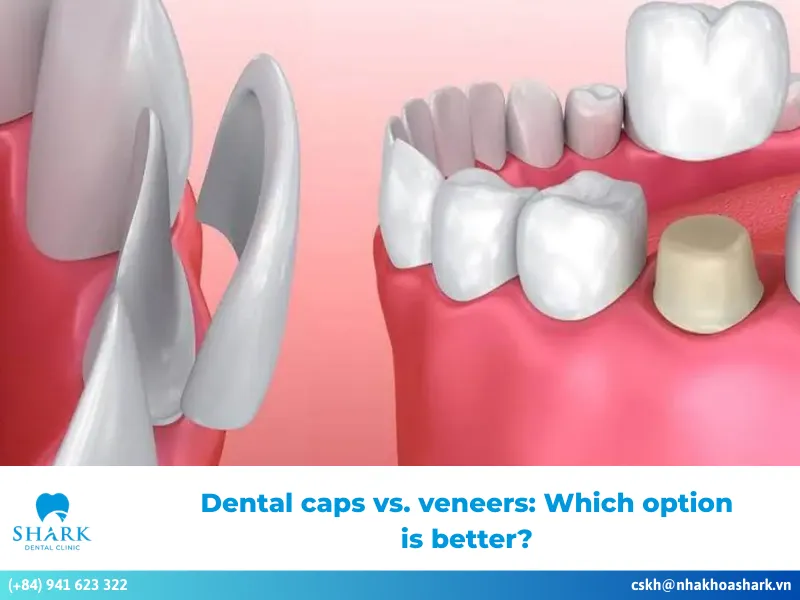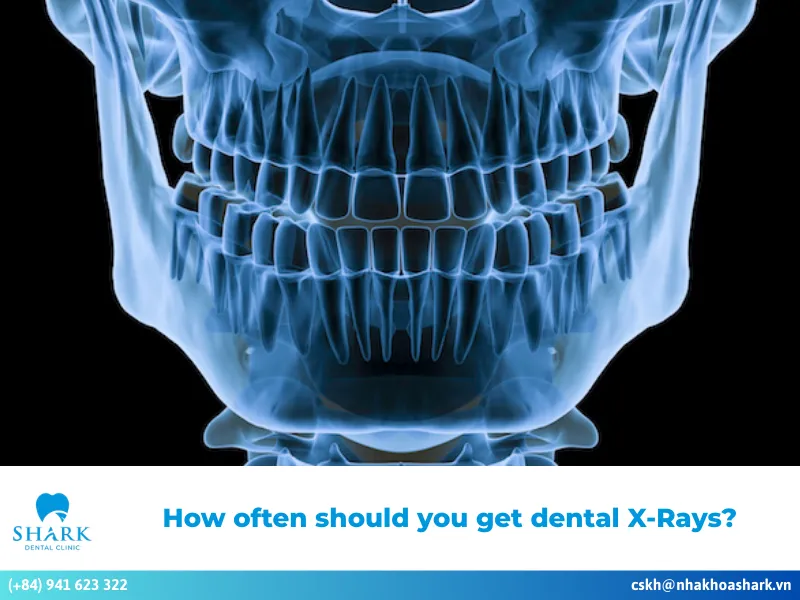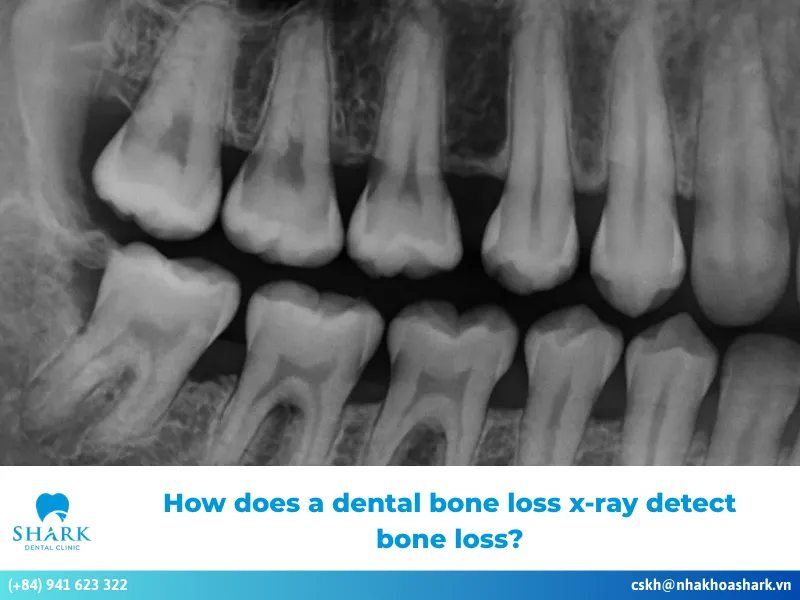Partial dentures are a common method of tooth restoration, providing convenience for users. To better understand this method, in the following article, Shark Dental Clinic will inform readers about what is one advantage of using acrylic teeth instead of porcelain teeth in partial dentures. Let’s explore this topic together!
Acrylic vs. porcelain comparison
To appreciate the differences between acrylic and porcelain teeth used in removable dentures, it’s essential to understand these two dental materials.
- Porcelain teeth: Porcelain teeth are dental materials made from ceramic, commonly used in removable dentures. These teeth are durable and designed to match the size and color of natural teeth, ensuring optimal orthodontic effectiveness.
- Acrylic teeth: Acrylic teeth in removable dentures are made from acrylic or composite resin, closely resembling the color of natural gum tissue. This material is secured to natural teeth using metal or clear clasps, providing a durable and effective orthodontic solution.
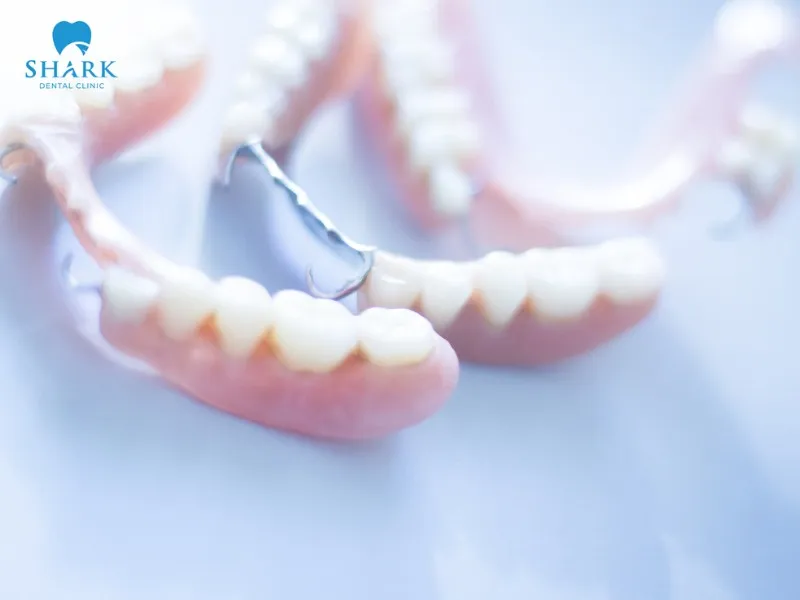
Below is a detailed comparison table of acrylic and porcelain teeth in removable dentures for your reference:
| Criteria | Acrylic Teeth | Porcelain Teeth |
| Durability | Acrylic teeth are made from resin, which is lightweight and easily adaptable. They can withstand moderate wear and are less likely to break under chewing pressure compared to porcelain teeth. | Porcelain teeth are highly rigid and have excellent wear resistance, similar to natural teeth. However, they are at a higher risk of cracking or chipping from strong bites or impacts. |
| Aesthetics | Acrylic teeth, being made from resin, do not have the same high shine as porcelain teeth. Additionally, their color stability is lower than that of porcelain, which affects their overall aesthetic appeal. | Porcelain teeth are highly regarded for their aesthetics. They are designed to mimic natural teeth in both color and shine, providing a bright and confident smile. |
| Cost | Acrylic teeth are affordable, highly adaptable, and significantly cheaper than porcelain teeth due to the low cost of resin and the simpler fabrication process, without requiring complex machinery. | Porcelain teeth are more expensive because of their superior durability, aesthetics, and the complex fabrication process requiring highly skilled technicians with years of experience. |
| User Experience | Acrylic teeth are lightweight and easy to adapt to the mouth, offering a comfortable and confident fit. They can also be easily adjusted along the gum line, making them popular among patients. | Porcelain teeth, while durable, have a harder surface and require a longer adaptation period, which may make wearing them less comfortable. |
| Maintenance | Acrylic teeth are easy to adjust and maintain, requiring care with a soft-bristled toothbrush. | Porcelain teeth need more careful oral hygiene practices. Their shiny surface requires gentle brushing with a small, soft-bristled toothbrush to avoid affecting their appearance. |
Conclusion: Both porcelain and acrylic teeth have their own advantages and disadvantages, making them suitable for different individual needs. You can refer to the comparison table above to choose the most appropriate dental material, ensuring optimal results for denture restoration.
What is one advantage of using acrylic teeth instead of porcelain teeth in partial dentures?
Acrylic teeth offer many outstanding benefits, so you may consider choosing this dental material as a replacement for porcelain teeth in removable dentures:
- Affordable cost: One key advantage of using acrylic teeth over porcelain teeth in partial dentures is their affordability. Acrylic teeth are significantly less expensive than full porcelain teeth, making them a popular choice for many patients.
- Adequate aesthetics: Although acrylic teeth may not match the aesthetic quality of porcelain, they still provide effective results for correcting dental issues, helping patients achieve a bright and even smile.
- Easy adjustment: Acrylic teeth have a degree of flexibility, which allows for easy adjustments during orthodontic treatment. This also makes daily oral hygiene and cleaning more comfortable.
- Lightweight: Acrylic teeth are lightweight and adaptable, ensuring a comfortable experience for patients during eating, speaking, and daily activities after treatment.
Overall, acrylic teeth in removable dentures present an appealing option with multiple benefits. If you are searching for a cost-effective dental restoration solution, acrylic teeth are worth considering.
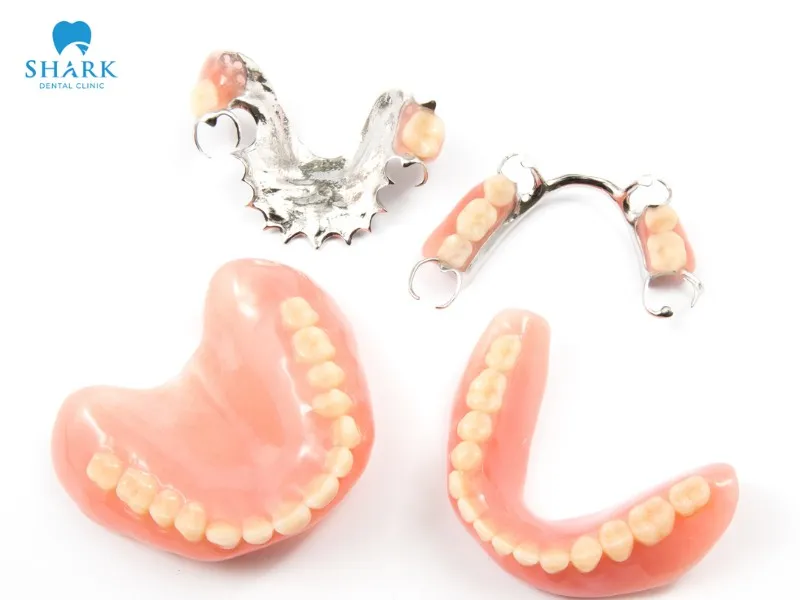
This information summarizes what is one advantage of using acrylic teeth instead of porcelain teeth in partial dentures, as compiled by Shark Dental Clinic. We hope this helps readers better understand dental materials and make informed decisions regarding their orthodontic care.
>>> See more: How to clean dentures naturally






